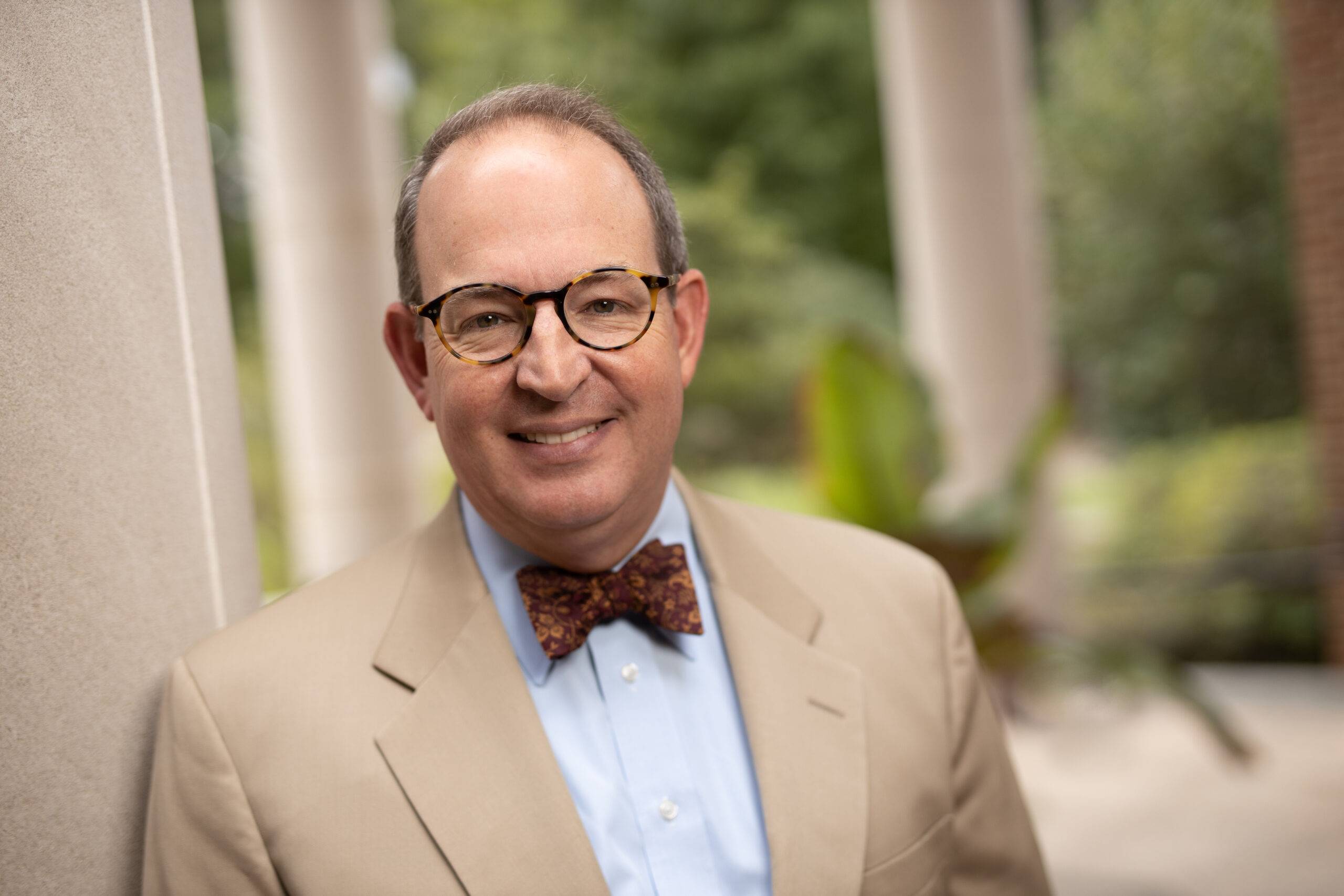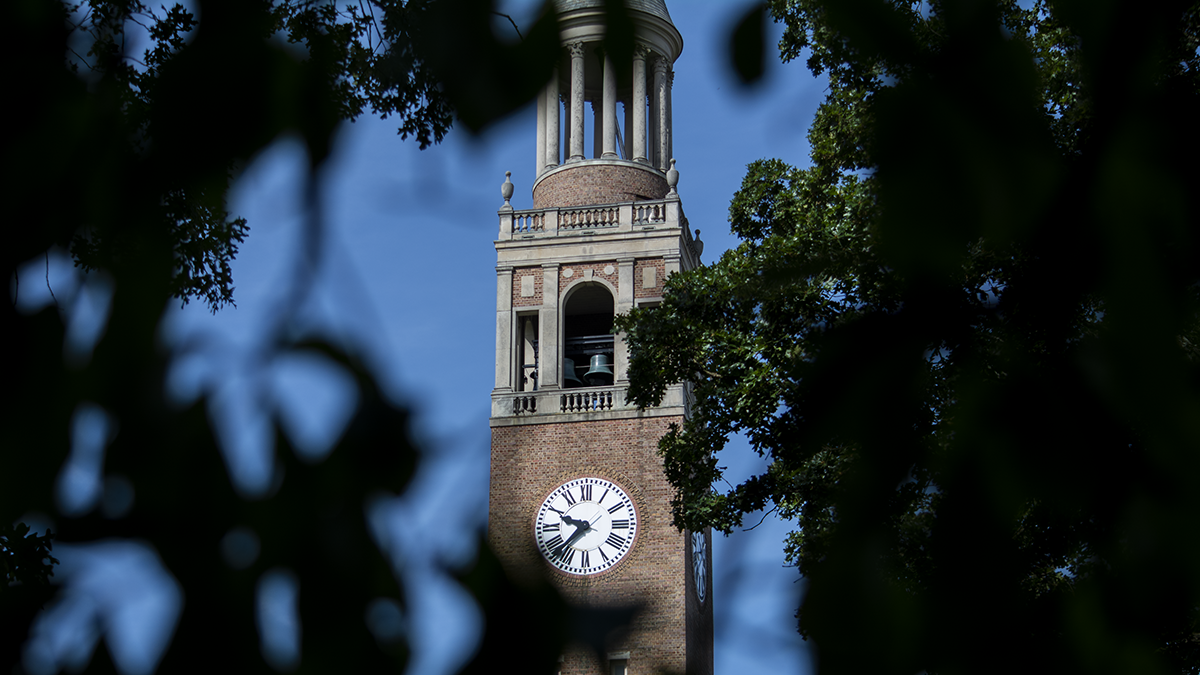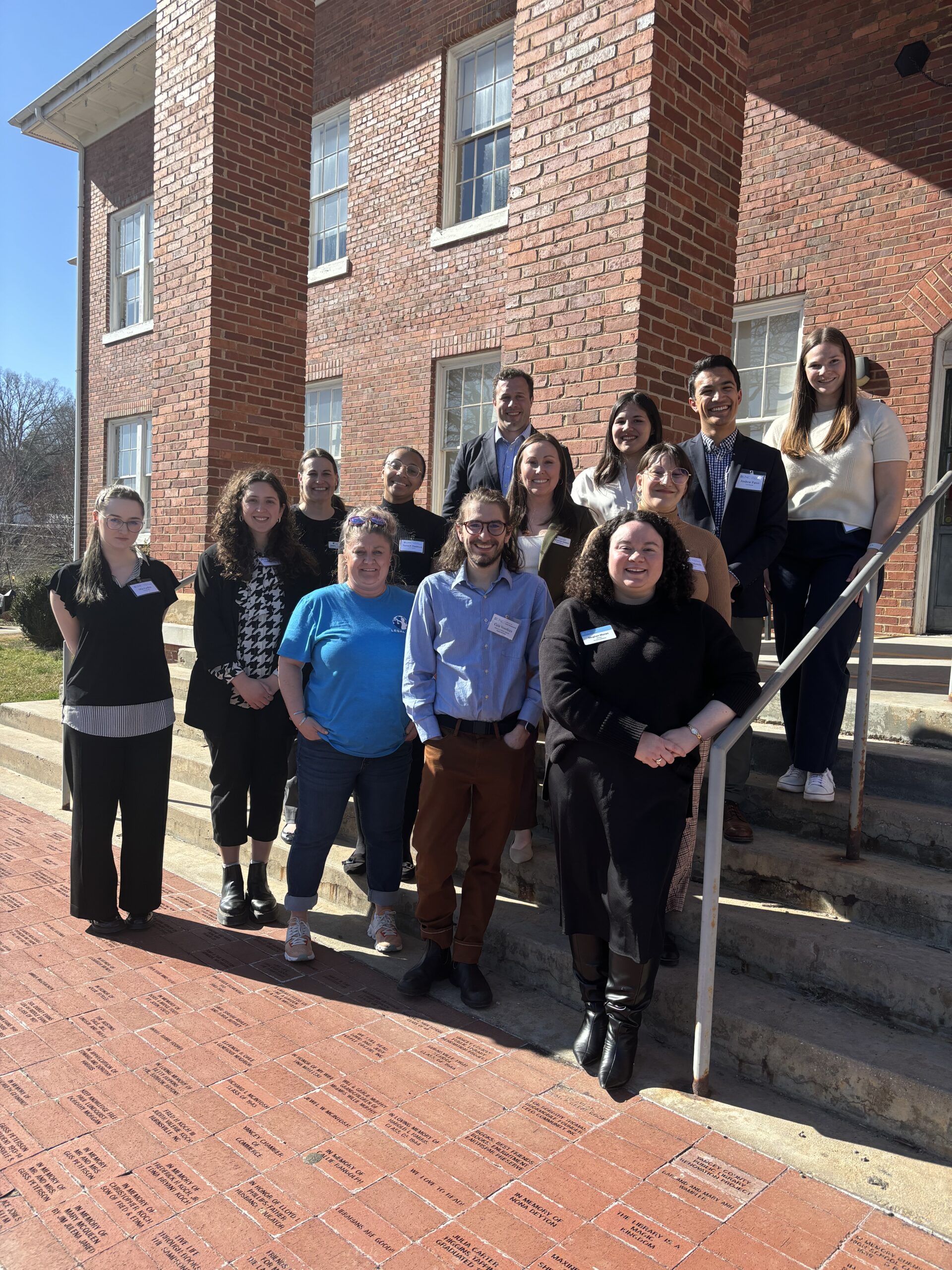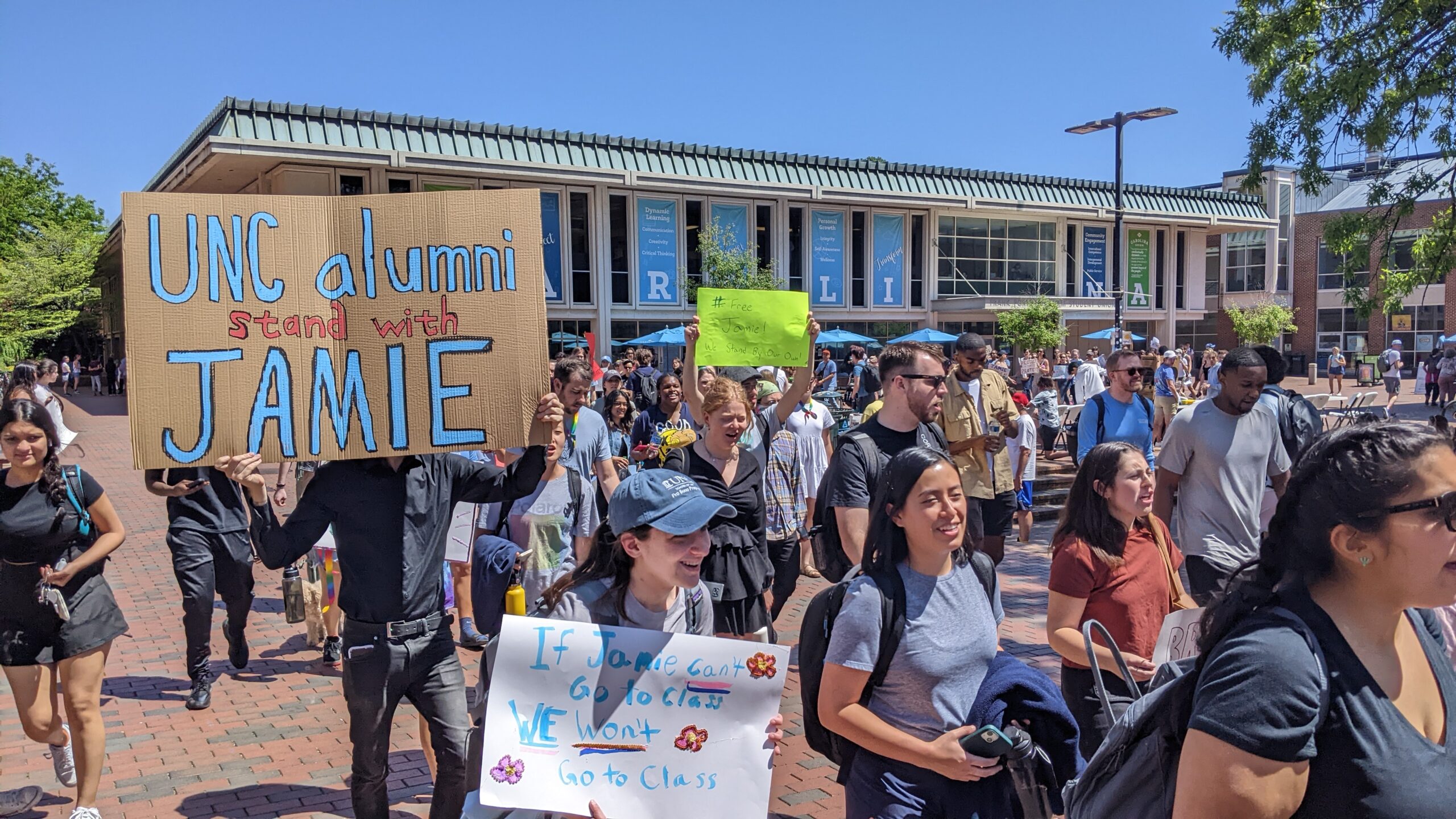Last month’s Supreme Court decision overturning Roe v. Wade has sparked a great deal of criticism and widespread discussion. Naturally, most of that discussion has revolved around the abortion issue and what the practical impact of the Court’s ruling might be. But the ruling has also generated discussion about the Supreme Court itself – not just because the decision was controversial, and not just because the Court lacks political accountability, but also because the Court’s opinion, in many ways, seemed to be at odds with how the justices tend to operate.
How should we understand the Supreme Court now? And to what extent should we be considering any of the Court reforms that have been proposed in reaction to last month’s decision?
97.9 The Hill’s Aaron Keck recently spoke with Michael Gerhardt, the Burton Craige Distinguished Professor of Jurisprudence at the UNC School of Law. A renowned scholar of the Supreme Court, Gerhardt has written or co-written several books about the institution, including “The Power of Precedent” (2008) and “Constitutional Theory: Arguments and Perspectives” (2014).
Listen to their conversation.
Michael Gerhardt: First, we all knew this was coming. And not just because there was a leak of the Supreme Court’s opinion earlier this year. It’s because a number of presidents promised to put justices on the Supreme Court who would vote to overrule Roe v. Wade. President Trump placed three justices with that promise. And therefore, for these justices to vote to overrule Roe was not a surprise. Beyond that, we know that Republicans, and particularly conservatives, for years have been arranging and working for this moment to happen. It’s been no secret for decades that the party is mobilized behind this. I think there’s no issue that mobilizes Republicans more.
Aaron Keck: There are a number of things that we know – or that we think we know – about the Supreme Court, that tend to be the case with (their) rulings. They rarely issue big sweeping rulings, when more minimalistic rulings are possible. They rarely overturn precedent. Scholars of the Supreme Court (say) that the Court tends to “follow the election returns,” even though it’s an undemocratic institution. But all of those things seem to be out the window now. So to what extent do we have to revisit our general understanding of the Supreme Court as an institution?
Gerhardt: I think it’s worth revisiting. Because I think we’ve probably been subject to a couple different myths about the Supreme Court for some time. The first is that the Court is completely apolitical. That’s just not true. It’s never been true. To the extent anybody is saying “this is kind of a new thing,” the politicization of the Court and justices – it’s not. It’s been a dynamic since George Washington was in office. George Washington appointed only people who would be supporting the national government (over the states), who were really strong capital-F Federalists. Abraham Lincoln appointed justices who would back up his war policies and also ultimately support Reconstruction. Franklin Roosevelt appointed justices who would support the New Deal. So the myth that somehow the Court is above or beyond politics is just that, it’s a myth.
I think the second thing we’ve got to revisit is the extent to which people use the Supreme court to implement their political agendas. Now, this isn’t unique to the justices that overruled Roe – but it’s worth understanding that Roe, in 1973, was decided by a Supreme Court that was dominated by Republicans. The decision in Roe was 7-2, (and) every Republican but one voted in the majority. So the Republican Party itself, particularly Republican judges, are not the same as they used to be. And that’s another reality we have to come to terms with: these justices that voted to overturn Roe are not interested in following national election returns. Quite frankly, I think they’re interested in fulfilling their party’s agenda, of which overruling Roe is just one thing.
Keck: Is that a difference with today’s justices, or today’s Republican Party?
Gerhardt: Well, I think that the justices in ‘73 were more what we might consider as classic conservatives, who would have really respected precedent. In fact, Roe is grounded in precedent. Justice Kavanaugh said as much in his confirmation hearings. That Court, those justices were actually doing what they thought was following precedent, in cases like Griswold v. Connecticut, which recognized the right to contraception. So (today’s) justices, I think, have been appointed in part because they do not. Because they’ve promised and pledged throughout their lives not to respect precedent. Amy Coney Barrett’s entire academic career was based on articles and speeches about how it’s important for a justice not to follow precedent, but to look to other things like so-called “original meaning” or text. So these justices, I think again, have made good on what we expected.
And keep in mind: if President Trump thought these three were going to vote to overrule Roe, just think about what he would have to know in order to be confident that they would do that. And the Senators – like Josh Hawley, who said he would only vote for somebody who would (overrule) Roe – what did they know? Whatever they knew turns out to be pretty solid knowledge, because the result is what they wanted.
Keck: You’re the author of a book called “The Power of Precedent.” So – to what extent does that book have to be revised now?
Gerhardt: <laugh> Well, probably not much. The book recognized that there were different approaches to precedent and that there was an approach of the kind I’ve just mentioned, judges who would really only agree with the precedents they forged, not the precedents (of others) that they happen to disagree with. But what I probably have to do is add to what I’ve already written about Roe. I’d talked about how Roe had been reaffirmed more than 30 times, (and) one thing that’s unprecedented here is the overruling of a precedent that had been reaffirmed that many times.
Keck: So one of the things that folks are talking about now, with respect to the Supreme Court, is the extent to which its institutional legitimacy is in question or being challenged. This is also something that has happened at different times in the past. What do you make of the way that discussion is taking place now?
Gerhardt: Yeah, it’s a great question. I think it’s a really important discussion, because what does recognizing the court’s institutional legitimacy mean? I will have to say, I think right now it’s hard. If the Court can change its decision making based on its membership, what does that tell us about the rule of law now? For some people that might tell us, oh, the (previous) justice didn’t believe in the rule of law. But the rule of law doesn’t – and it’s not supposed to – track a party’s platform. It’s supposed to be grounded in such things as text and precedent, and for some justices original meaning. This opinion in Dobbs is not ground in any of those. It disregards precedent – in fact, Justice Thomas says those precedents on which Roe was based perhaps need revisiting as well. (And) it’s not grounded on text, although Justice Kavanaugh declared in oral argument, “well, the text says nothing about abortion.” That’s true because the text speaks in broad terms, not narrow terms. The text talks about due process, as it relates to the protection of liberty, and liberty includes certain freedoms. The court has said for more than a century (that) those freedoms include things (not specified in the Constitution) like a right to marry, a right to contraception. Those developments are all well known.
I think what we are confronted with, in trying to come up with clarity on the court’s legitimacy, (is) the extent to which justices are not (just) voting their personal preferences, not (just) voting to make the people that appointed them happy. And it’s hard to think that after this week. Because Dobbs isn’t just the only opinion. (There was also) an opinion which struck down a more than a century-old law in New York, that had (required licensing for) concealed weaponry in public. Not a crazy law at all. And the court said, no, that kind of licensing should not have to be required, because these weapons could be used for self-defense. I wonder to what extent people riding on the subways in New York are going to think it’s really necessary to have an AR-15 to protect them on the subway. Shootings have not been common on the New York subway, up till now. We’ll have to see what happens in the future.
Keck: There have been a number of reforms that have been proposed. The most basic one is just (to) add a whole bunch of new justices. Another is to make judicial appointments 18-year terms, and just appoint a new justice every two years. What are your thoughts about those?
Gerhardt: I think any kinds of proposals are probably appropriate to consider, because any of those proposals would depend on people who are politically accountable. One thing about the decision (that) even critics of Roe might say is, that the justices are not politically accountable for making that decision. But any reform, even (an) extreme reform – like expanding the size of the court, which has been done in the past – that’s all political, and it’s done by political actors, who then have to be accountable for their decisions. So to the extent “we, the people” is something we take seriously, and we recognize “we, the people” as being the most fundamental power, then “we, the people” will be making those decisions. And as such, they won’t be extreme. They’ll be ultimately political decisions, and the people who made them are going to be accountable politically. Right now we can’t hold any of the justices accountable politically, whether we agree with them or not. That’s the whole point of being a justice, you’re immune to political reprisals. But at least the reforms would not be immune to political reprisals.
Keck: People who are upset by this decision – I see a lot of this on social media, I’m sure you’ve seen it too – are angry at the Supreme Court, (but) a lot of them are also angry at the Constitution. “Why are we bound by this 200-year-old document? Why do we care what these dead white men have to say?” Thomas Jefferson would be super proud. But I’ve been arguing that this is bad strategy: Americans like the Constitution and they embrace it, and it’s better politics to (claim it as) yours than to give it over to the other side. And it’s just not correct. The Constitution is a progressive and forward-thinking document – written by deeply flawed people, but people who were forward-thinking themselves. And if the Supreme Court comes down with a decision that’s against that, it’s not the Constitution (that’s the problem), it’s the Supreme Court.
That’s me talking, though. What are your thoughts?
Gerhardt: Well, (I’m) the law professor, you know, the person that’s devoted his life to the rule of law and to studying the Constitution. The first thought I have is: robust discussions about this are good. That fosters, hopefully, better understanding.
My second thought is: I fundamentally believe in the legitimacy of the US Constitution. It’s not a perfect document, but it has broad language. And ultimately what we’re really challenged to do is to think about how we should interpret it. And that’s the critical question. It’s not (a question of) whether or not the Constitution protects “unenumerated” rights, rights that are not specifically mentioned. Of course it does. The most obvious (is) the right to marry, and I think people of different political persuasions would recognize (that) as a fundamental right. Well, if they do, that’s not specified in the Constitution, and (yet) the Constitution provides its protection.
So what we’re really left with is the very thing that we teach in law school, the very thing that judges and justices should be concerned about and should be engaged in. And that is how best to explain and justify their constructions of the Constitution. It’s all about how we construe the Constitution – and the more that can be grounded in legitimate sources of decision, the more that can be grounded in persuasive reasoning, the better off the Supreme Court will be.
Keck: Final thoughts?
Gerhardt: This is just the beginning, of course, of a newer age of constitutional decision making. And I think that perhaps one thing that may be a great byproduct of all this is for people to become more politically engaged. I think if there’s a cost that Roe had, it made people complacent, and complacency has no role in democracy. So I think if people are not happy – or happy – they should become politically engaged and vote their preferences, and then stick by those votes and vote again. That’s the best way for people to be satisfied with how, not just the court, but with how people in Washington do their jobs.
Chapelboro.com does not charge subscription fees, and you can directly support our efforts in local journalism here. Want more of what you see on Chapelboro? Let us bring free local news and community information to you by signing up for our biweekly newsletter.











